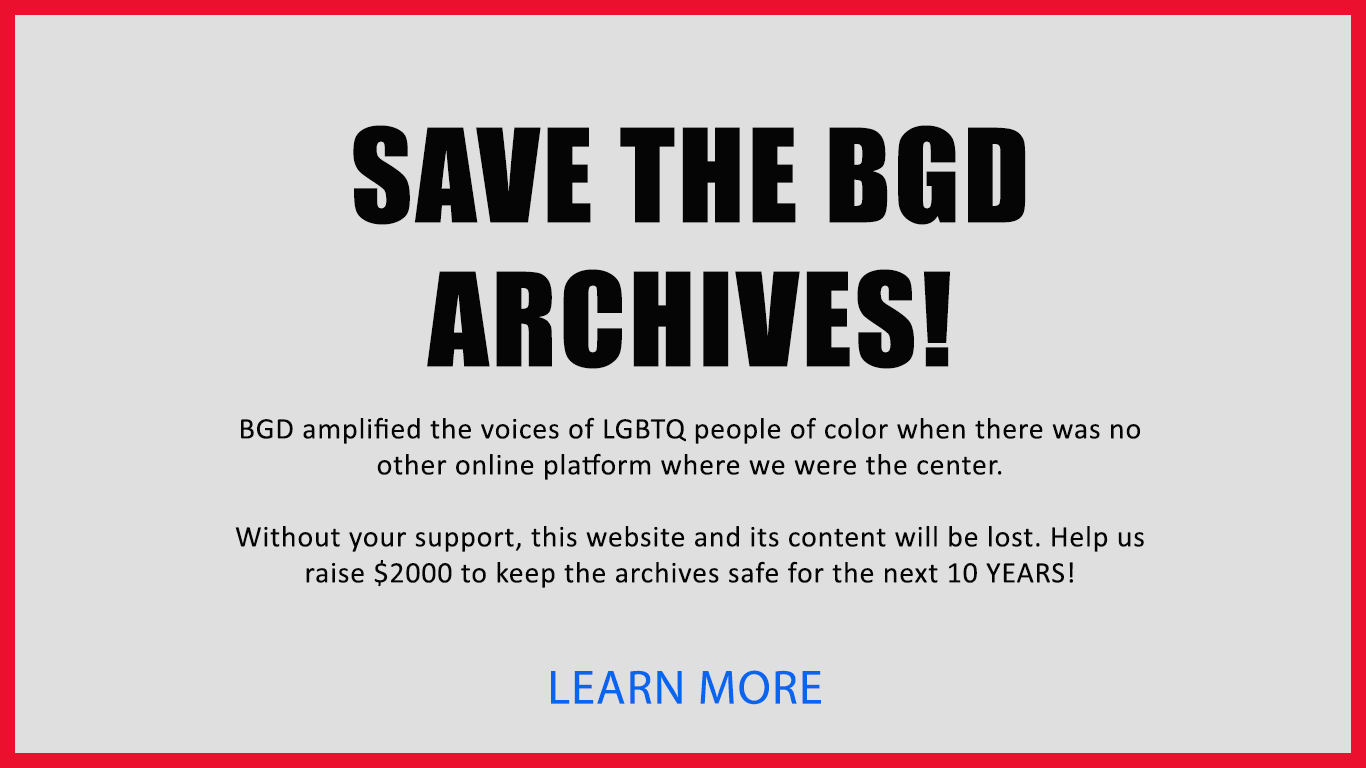by Jezebel Delilah X
The Fourth of July is fast approaching and all across the land radical people of color** will take to the internet, ranting about the continued celebration of genocide, colonization, and imperialism. When we preach against the legacy this holiday affirms, and in fact in all of our collective critique, it often feels like our connection is predominately rooted in how hurt we are by the groups that have harmed us, rather than a shared desire to support, love, and heal each other independently.
White people or straight, cis gendered folk don’t need to be around in order for white supremacy and patriarchy to be prevalent; we speak, breathe, cry, and rant them into the room entirely too often—as opposed to developing our authentic, collective identity and healing our traumas (much less examining and acknowledging the ways we harm each other). I am not encouraging an end to a critique of whiteness or patriarchy; rather, I am suggesting we stop borrowing their behaviors under the guise of militancy or liberation.
I want to exist in a QTPOC community that, instead of adhering to the “common enemy model,” finds its unity through a critically developed love for itself. If the core of our connection is mostly our collective frustration with some other party, then we have a weak core that can and will easily crumble or even attack itself.
BGD accepts submissions from queer and trans writers of color! SUBMIT your work.
Love, as a foundation, is generative and creative. It is through love for each other that we challenge ourselves to move away from the safety of assimilating to white supremacy and patriarchy and continue developing new systems and behaviors that reflect our visions and enable our collective well-being.
I’m advocating for practicing a SELF-reflection-informed accountability that asks us to look inward during times of distress rather than outwards. I want us to consider how WE participate in, and sustain, the various harms and violations we experience; to consider the ways that WE—through intent, selfishness, insecurity, or neglect—cause harm to ourselves, our lovers and former lovers, our friends and former friends, our artistic and activists colleagues and audiences, and all the members of our greater community.
How can one be a feminist/womynist but glorify queer masculinity as social or intellectual leadership? How can one claim to fight colorism, but validate their fatphobic dating practices with language like “just my preference?” How can one claim to be an anti-gentrifying organizer, but hold spaces that are not accessible for chronically ill and disabled people or queers with children? How can one be an anti-racist, but practice classism (as classism, in my opinion, is just an extension of eurocentricism) or shop at companies that sustain economic imperialism? How can one claim to be a revolutionary, but not hold their friends accountable for being abusive to others, or treating people as if they are disposable and unimportant?
I’m interested in a POC, QTPOC, poor and working class, crip and disabled, womyn centered, love-based revolution. To be more specific, I want to participate in a community that de-prioritizes whiteness, patriarchy and masculinity, celebrity, cis folk, and other forms of privilege when discussing who we are and how we want to exist with each other. I want to see a QTPOC culture that recognizes how we recreate hierarchy and privilege and works to reject those hierarchies and privileges when they are offered to us. We cannot practice accountability as a community if we cannot practice it within our individual lives. Even if we cannot stop people in positions of great political and cultural power from doing the oppressive things they have been doing for centuries, we can create and uphold an alternative model.
We have an abundance of intellectual, artistic, familial, romantic, psychological, medicinal, and economic resources; we do not need systems that emerge from this country’s white supremacist heritage to survive. Further, we need to stop living in opposition to whiteness when we can be living for the empowerment and survival of each other. We can take care of each other if we choose; but, when we do it, it needs to be rooted in love, self-reflection, and generosity. So, this year, when you critique U.S. imperialism on July 4th, dedicate some of that energy to critiquing and shifting the ways you contribute to and benefit from that imperialism by creating new practices, rituals, and systems for intra-community accountability and resilience.
All work published on BGD is the intellectual property of its writers. Please do not republish anything from this site without express written permission from BGD. For more info, go here.
 Jezebel Delilah X is a queer, Black, femme, Faerie Goddess Mermaid Gangsta for the revolution. She uses a combination of performative memoir, theatrical poetry,and feminist storytelling to advance her politix of radical love, socioeconomic justice, anti-racism, and community empowerment.
Jezebel Delilah X is a queer, Black, femme, Faerie Goddess Mermaid Gangsta for the revolution. She uses a combination of performative memoir, theatrical poetry,and feminist storytelling to advance her politix of radical love, socioeconomic justice, anti-racism, and community empowerment.
![]()













